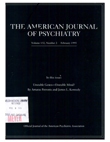Adult reconstruction of childhood events in the multiple personality literature
Abstract
The author reviews the dependability of adult reports of childhood abuse and trauma, which are emerging in therapy with increasing frequency. He reviews the literature on multiple personality disorder to explore the extent to which corroboration of adult reports of childhood events is recorded. He also summarizes the relevant studies of memory both with and without the aid of hypnosis. He finds that there is minimal corroboration in the literature of the adults' reports of childhood abuse. Memories brought forth with the aid of hypnosis are undependable because of the large number of inaccuracies introduced by hypnotized subjects. Memories brought forth without hypnosis have been shown to be prone to distortion by intentional as well as by unwitting cues. The author concludes that the recent enthusiasm for the adult discovery of childhood abuse has been accompanied by little attention to factors that potentially affect recall of childhood abuse, including the bias of therapy. The use of hypnosis might well be an aggravating factor in distorted recollections of childhood abuse. Validation without corroboration by the therapist of the patient's memories has serious ethical and possibly legal consequences.
Access content
To read the fulltext, please use one of the options below to sign in or purchase access.- Personal login
- Institutional Login
- Sign in via OpenAthens
- Register for access
-
Please login/register if you wish to pair your device and check access availability.
Not a subscriber?
PsychiatryOnline subscription options offer access to the DSM-5 library, books, journals, CME, and patient resources. This all-in-one virtual library provides psychiatrists and mental health professionals with key resources for diagnosis, treatment, research, and professional development.
Need more help? PsychiatryOnline Customer Service may be reached by emailing [email protected] or by calling 800-368-5777 (in the U.S.) or 703-907-7322 (outside the U.S.).



